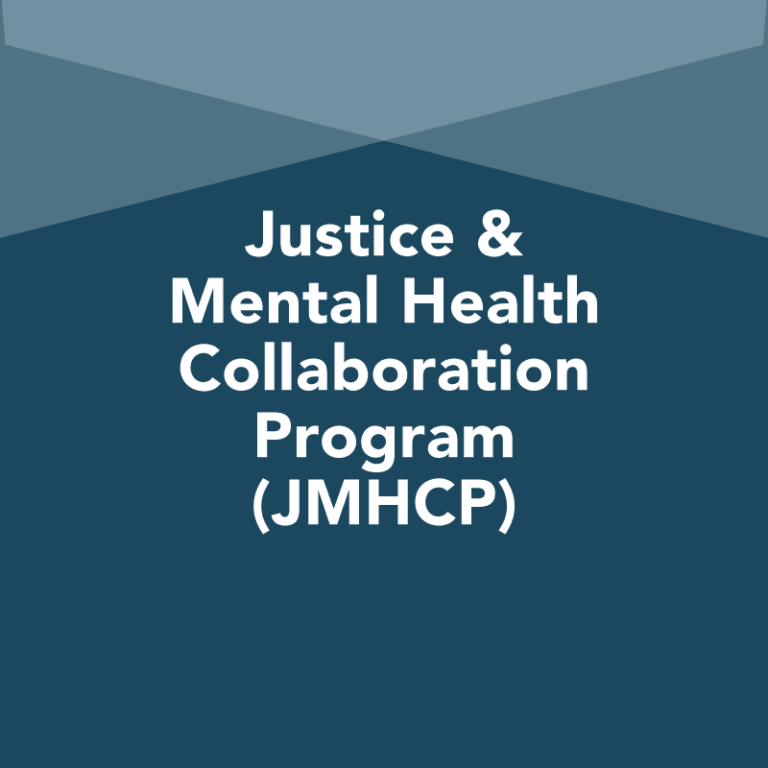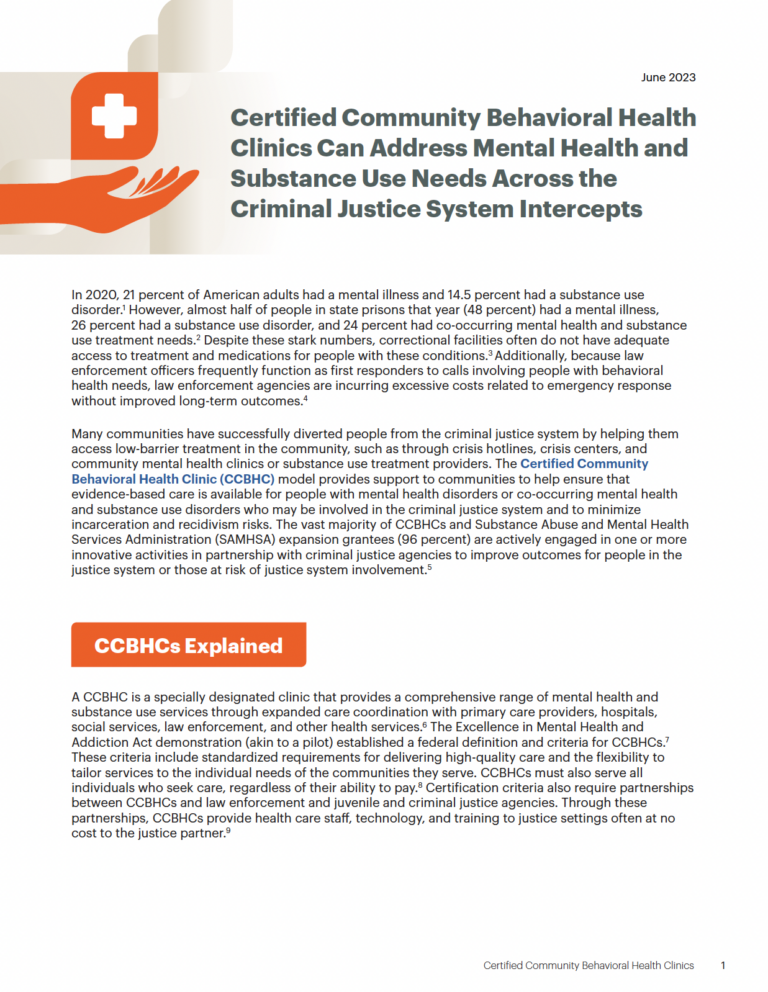When a 911 call for service is received, dispatch center staff need to make quick decisions about which agency—law enforcement, fire, or emergency medical services—will respond to the call. The dispatcher also has to decide which type of response is appropriate. A call triage protocol is one essential tool for guiding the response to these calls. Processing guides include policies and procedures that outline the roles and responsibilities of all public safety answering points staff and offer guidelines for scenarios that officers and dispatch staff may encounter. This brief explains the benefits of these guides and provides examples from jurisdictions.
Related Resources

Preparing Law Enforcement Agencies for Embedded Clinicians
Crisis Systems, Law Enforcement, Mental Health
Read more
FY2023 Planning and Implementation Guide for JMHCP Connect and Protect
Co-Occurring Substance Use, Law Enforcement, Mental Health
Read more
Certified Community Behavioral Health Clinics Can Address Mental Health and Substance Use Needs Across the Criminal Justice System Intercepts
Co-Occurring Substance Use, Crisis Systems, Mental Health
Read more